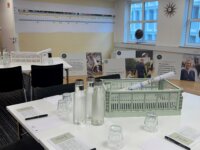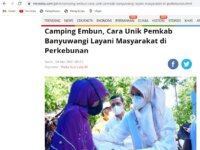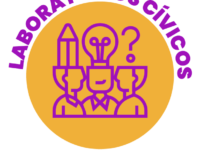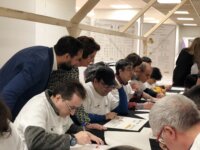With the aim of continuing to promote confidence in legislative work and to open a more direct channel of communication with the new generations, LEGIS65 is born. LEGIS65 is a virtual assistant whose mission is to help society to know and learn more about the legislative work of Guanajuato, as well as the culture and history of the state, through illustrious characters produced by artificial intelligence tools.
Innovation Tag Opengov: participation
Baia Mare has developed a community-driven approach to decontaminate heavy metal-polluted land using plants, addressing a critical public health issue. The project combines phytoremediation, smart mapping technology, and a digital reward system to encourage environmental action and sustainable development. This innovative model empowers citizens, improves urban health, and creates new green economic opportunities.
This project aimed to translate new legislation on occupational injuries into a citizen-oriented service journey, helping those injured at work to re-enter the workforce through education. Through co-creation, we designed the future customer journey, designing a unified service that involved various stakeholders.
The project reduces the digital divide and accessibility problems for people with special needs and simplifies technology. It is a layer of artificial intelligence (AL21) that facilitates navigation and assists in carrying out electronic procedures, together with the deployment of cyberkiosks that allow access to technology free of charge and Smart Centres to train citizens in digital skills. The Public Procurement of Innovation methodology is used in its implementation.
The gap in residency rights for residents living in plantation/forest areas has an impact on unequal distribution of social assistance, health, education and difficulty in accessing public services. The Camping Embun innovation is a camping activity which provides population administration services in plantation/forest areas and completes population documents that aren't there or haven't been updated. So that, residents in the area have legal certainty regarding ownership of population documents
The City of Recife, like any city, faces the challenge of solving complex problems, however, there was difficulty in identifying them and finding effective solutions. The opportunity then arose to encourage open innovation in the city and involve the community in the development of solutions. Innovation lies in how to identify these problems, transform them into challenges and how to buy something new from a public body to solve these challenges. EITA Recife brings together the City Hall…
Bogotá-Colombia is a city co-administered by 20 local mayor's offices. In the past, it was on the Mayor's power to allocate resources without necessarily go through public or community consultations, which is why several city infrastructures emerged without responding to specific needs nor recognizing the diversity in the population. With the Civic Laboratories of participatory budgeting, the community began to engage on where to decide where to invest their local budgets.
There are plenty of innovative initiatives that never manage to reach the public sector, generating inequalities in access and quality in the provision of solutions. GovtechLab Madrid is the first open innovation Lab located inside of the Community of Madrid. The focus of the Lab is on reducing the barriers and accompanying both the supply and demand sides in finding solutions and opportunities to implement them.
Easy Government invites people with disabilities to redesign legal and administrative texts (i.e., laws, subsidy formulares) using an easy-to-read approach based on pictograms, simple words, short paragraphs, and the creation of new products that are simpler and clearer for all audiences (i.e., seniors, immigrants, people with low reading comprehension, children). With the lenses focused on diversity and inclusion we seek to address complex issues faced by these population groups.
The IDT is a multi-stakeholder dialogue methodology whose objective is to generate spaces for collaborative co-creation to design public policy proposals for a locally development challenge.
The IDT Yumbo worked on a challenge prioritized by citizens. The causes were identified and solutions were proposed, creating a policy prototype. Through advocacy platforms, the prototype was presented to the local and regional government to incorporate the proposal as part of the Municipal policymaking.




